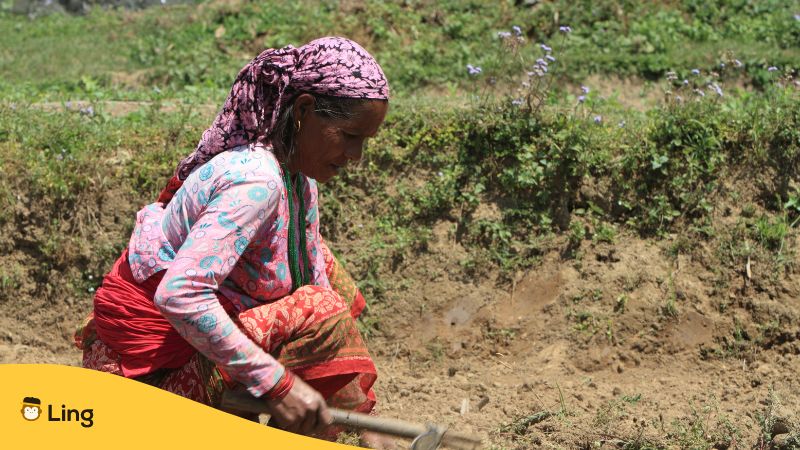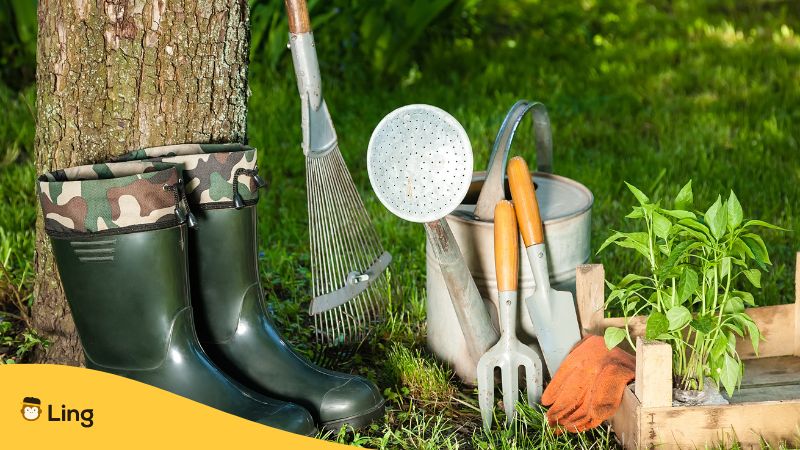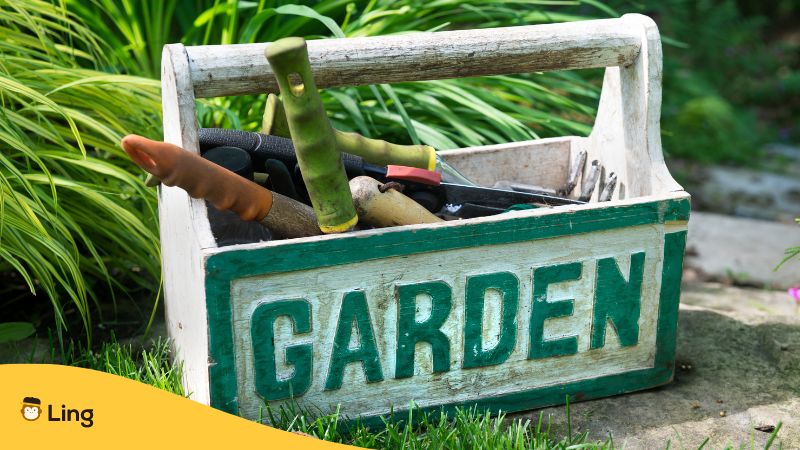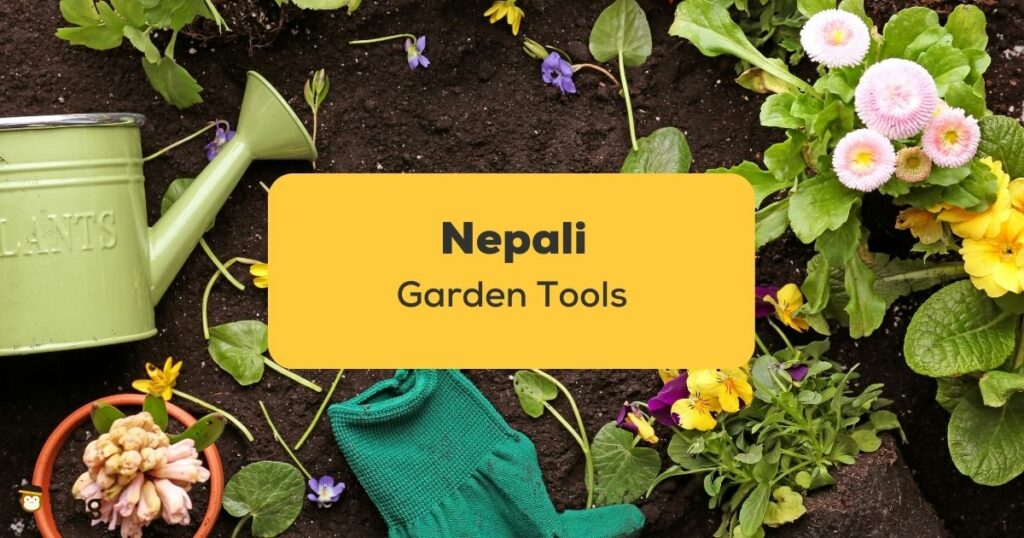Gardening isn’t just a hobby in Nepal—it’s a way of life! According to the locals, this is one way by which they stay connected to their roots, preserving age-old farming traditions even in urban settings. No wonder why many have their own बगैचा (Bagicha) bursting with fruits, veggies, and herbs! Ready to unleash your inner horticultural superstar? If yes, then read on as we explore the world of Nepali garden tools. From traditional picks to nifty gadgets, we’ve got all the insider knowledge to make your gardening adventures in Nepal bloom like never before!
Gardening or बागवानी (Bāgavānī) is appreciated by many for its aesthetic appeal. Nepalis too, take a lot of pride in creating visually pleasing gardens with colorful flowers, ornamental plants, and well-maintained lawns. Culturally, they view the gardens as an extension of the home and offer a place to relax and enjoy nature. So if you’re thinking about a topic to talk about with the locals, know that anything related to gardening will be a sure hit. Don’t believe me? Just try sprinkling out some of the words we’ll cover below!

Common Nepali Garden Tools
In Nepal, gardening is a cherished tradition, and Nepalis have developed a variety of tools to make their gardens flourish. So, let’s uncover the essential garden tools and discover their Nepali script translations and pronunciation below!
| English | Nepali | Pronunciation | Description |
|---|---|---|---|
| Spade | कुर्पी | Khurpi | Small handheld tool with a curved blade for digging, transplanting, and weeding. |
| Hoe | खुर्कुरी | Khurkuri | Narrow-bladed hand hoe for cultivating, removing weeds, and working in tight spaces. |
| Pickaxe | बघेली | Bagheli | Traditional tool with a pointed blade for breaking up soil, digging trenches, and removing roots or stones. |
| Scissors | दाउ | Dao | Knife-like tool with a curved blade for cutting branches, pruning shrubs, and harvesting fruits or vegetables. |
| Stick with sharp curved blade | खुंटा | Khunta | Long-handled tool with a curved blade for pruning and trimming out-of-reach tree branches. |
| Short Sickle | सेका | Seka | Small handheld sickle with a curved blade for cutting grass, harvesting crops, and trimming plants. |
| Machete | गण्डासा | Gandasa | Long-handled cutting tool with a broad, straight blade for clearing vegetation and chopping branches. |
| Trowel | फाल्नु | Phalnu | Flat-bladed gardening tool for digging, transplanting, and turning over soil. |
Armed with the knowledge of common Nepali garden tools, you’re now equipped to embark on your gardening journey with confidence! Whether you’re tending to a small backyard garden or cultivating a lush oasis, these tools will be your trusted companions.

Planting Essentials In Nepali
When it comes to planting, having the right essentials is crucial for nurturing your beloved plants. In Nepal, gardening enthusiasts rely on a variety of tools and materials to create thriving gardens. From pots to soil, let’s explore the common items used for planting in Nepal and discover their English names, Nepali translations, and pronunciations.
Here’s a table showcasing the translations of common planting essentials in English, Nepali, and their respective pronunciations:
| English | Nepali | Pronunciation |
|---|---|---|
| Pot | मट्टिको ढोका | Maṭṭiko Ḍhokā |
| Soil | माटो | Māṭo |
| Compost | कम्पोस्ट | Kamposṭa |
| Fertilizer | खाद्य | Khādya |
| Seeds | बीउहरू | Bīuharu |
| Watering Can | पानी दिने बट्टी | Pānī Dine Baṭṭī |

Planting Practices In Nepal
While on the topic of gardening tools, let’s also understand how these practices are related to Nepali culture. In Nepal, it is common to have a set of sacred or religious gardens पवित्र बगैचा Pavitra bagicha associated with temples, monasteries, and holy places. These gardens are carefully tended and often feature symbolic plants and flowers. For instance, Marigolds गाँठो Gamtho holds great cultural significance in Nepal. They are commonly grown in home gardens, especially during festivals and religious ceremonies.
Planting trees, especially religiously significant ones like the sacred fig and banyan trees, is a common cultural practice in Nepal. People often plant these trees during auspicious occasions or in memory of loved ones. They are believed to have spiritual significance and provide shade and ecological benefits.
Due to Nepal’s mountainous terrain, terrace farming is widely practiced. Terraced fields allow cultivation on slopes, maximizing arable land. This agricultural practice has been passed down through generations and is an integral part of Nepali culture.
Surprisingly, Nepal celebrates various festivals dedicated to conservation and planting trees. For example, Baisakh Purnima is a festival where people plant trees and participate in clean-up campaigns to protect the environment. Similarly, during the Teej festival, women perform rituals and plant barley sprouts as a symbol of prosperity.
Did you enjoy this post? If you did, then you have to give yourself a chance to expand your knowledge about this outstanding Asian language. Sure, learning the words we covered above can be helpful, but actually putting them into sentences will do you more good! Our advice? Start learning Nepali!
Learn Nepali With Ling
As you get to know more about the gardening hand tools like garden scissors, garden hose, and where to find a high-pressure washer, you may need to have more vocabulary and conversational phrases. But don’t worry, we have you covered!
The Ling app is here to help you learn Nepali and 60+ other languages. Think of it as a greenhouse where you can find tons of lessons, advanced language tools, and gamified features to truly help you master your target language. That’s not all! With Ling, you also have the chance to check out the blog for so much information on cultural context and interesting topics.
So what are you waiting for? It is time – download the Ling app today from the App Store or Google Play Store now and start learning!



































































